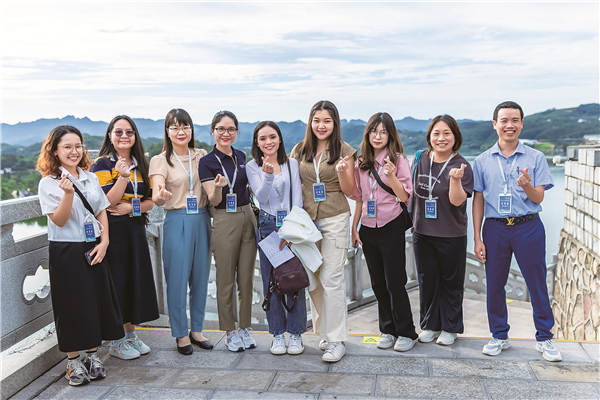Solving problems together


Phone also talked about the principles that the cordial relations between China and ASEAN countries are built upon — mutual respect, equality, mutual benefits and shared development. These are also principles followed by young people of different countries when they interact with each other.
Chinese student representative Zhang Hanyu, from Central China Normal University, resonates with this thought. After she entered the university, she joined a student society called Association for Intercultural Communication. She has met friends from across the world, tasted the unique cuisines and experienced the traditions of their countries. She has also interviewed them about their observations of today's Chinese society.
What moved Zhang most was that during the COVID-19 outbreak in the winter of 2020 in Wuhan, many of her international friends posted online videos to clarify the defamation of China by some overseas media. "They live in China and know the real China. They tell the world their Chinese stories, and in the meantime introduce their own countries and cultures to Chinese people. In this way, they enhance mutual understanding and friendship."
The efforts made by both Chinese young people and those from ASEAN member countries are also recognized by Raul L.Lambino, chairman and secretary of the Association for Philippines-China Understanding.
"The youth of China and the ASEAN countries possess a unique advantage — a rich tapestry of diverse cultures and a wealth of collective heritage," he said. "The ASEAN-China Young Leaders Exchange Festival is a testament to our collective belief in the power of youth to shape the destiny of our nations."
He emphasized, "By empowering our youth, investing in their education and providing opportunities for their growth, we can build a prosperous and inclusive future."





































